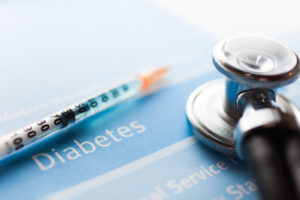Is There a Way to Keep Seniors’ Brains Sharp?
The Doctor’s Diagnosis
June 4, 20151Heart Caregiver Services® Supports the Simi Valley Franchisee for The Susan Geffen Event
August 1, 2015It has been known that as you approach your senior years or have been living as a senior already that you may be prone to cognitive decline.

In case you were wondering what this condition is then just observe any elder relative or any Baby Boomer who is having trouble remembering things, gets lost, or isn’t able do everyday normal activities.
Notice the use of the phrase “you may be prone”. The reason why no generalization was made that all seniors would have this impairment is due to a fact that there are still some seniors (called SuperAgers) that exhibit very good mental abilities. And with this perception comes a glimmer of hope that it is still possible to reverse or stop cognitive decline. But by what means? – Would it be thru the use of drugs/health supplements…physical exercise?
If you were to say that drugs or health supplements such as vitamins, DHEA (dehydreopiandrostenone), and ginko as well as other substances can then you’re wrong. Based on the review released by the Canadian Medical Association Journal there are no proven substantial benefits that one can gain by taking these supplements with regards to keeping mentally fit. Some of these drugs or supplements (example: estrogen) may even contribute to increased mental decline and dementia.
How about physical exercise such as resistance or balance training? No. The review also stated this even this method is not effective since it offered a little help. Physical exercise showed improvements in some but also did not provide any substantial benefits.
What then can reverse or prevent cognitive decline?
It turns out that mental exercise was the only effective way. Significant improvements over a 5 year period were seen on subjects who took mental exercises involving reasoning, speed, and memory. Although further studies have to be made in terms of finding other specific mental exercises’ effiacy, the review gives evidence to help clinicians and patients assess and find strategies to prevent this type of decline.
sources: everydayhealth.com & cmaj.ca
Disclaimer: 1Heart Caregiver Services Blog may contain articles about health care and medical related topics. However, no warranty is made that any of the articles are accurate. There is absolutely no assurance that any statement contained or cited in any or our articles touching on health care or medical related matters is correct, true, up-to-date or, precise, If any of the statements we mentioned about healthcare or medicine is accurate, it may or may not apply to you or your symptoms.
The health care or medical information provided on 1Heart Caregiver Services is, at best, of a general nature and cannot replace the advise of a health care/medical professional. 1Heart Caregiver Services will not take responsibility for the results or consequences in attempting to use or adopt any information presented in its blog articles



